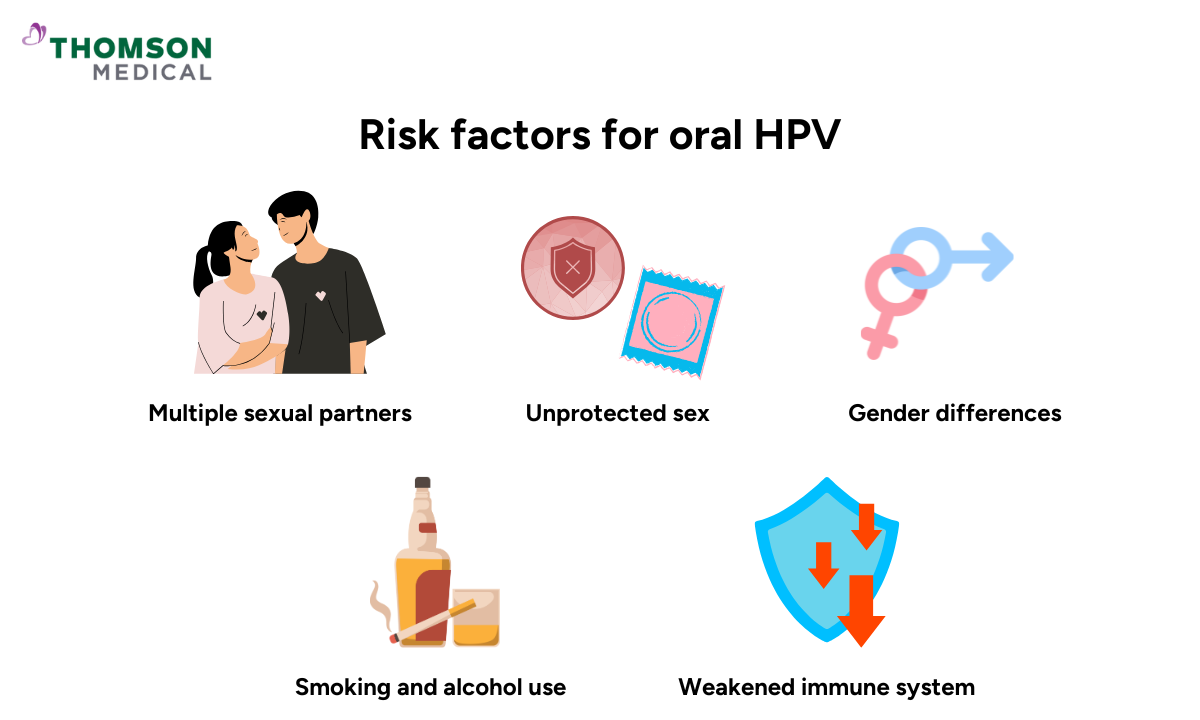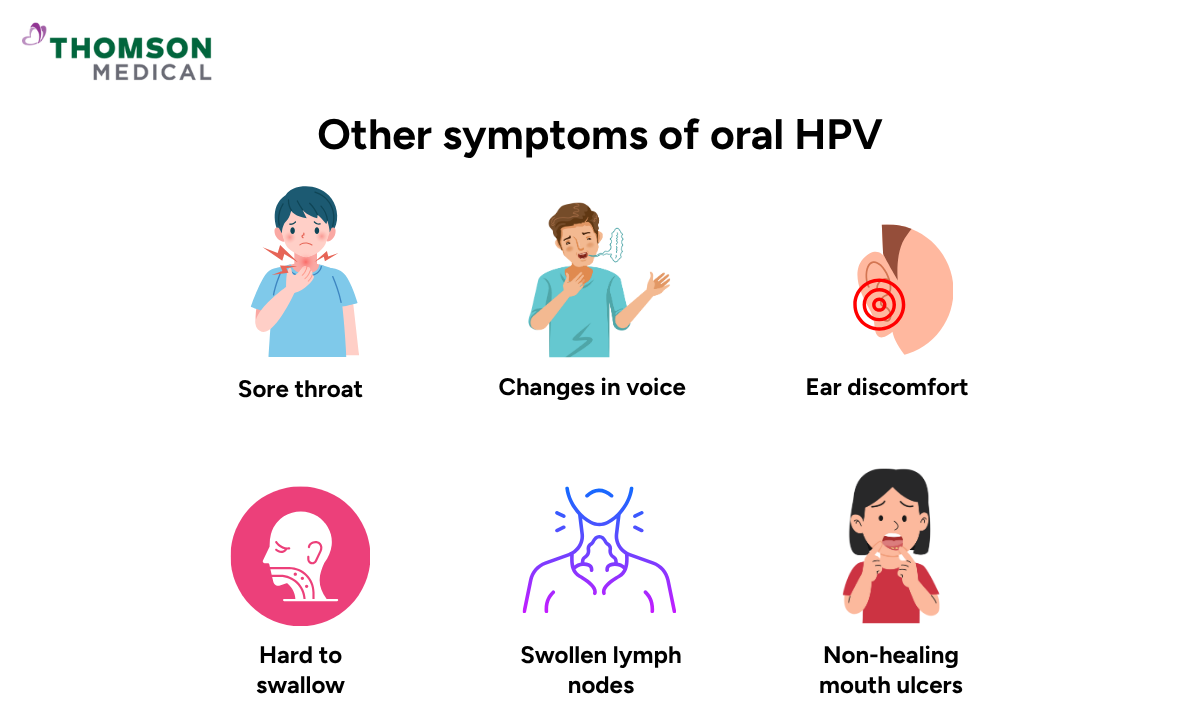Noticing small bumps on your lips can be worrying, especially if they appear suddenly or do not go away. In many cases, these bumps may be caused by human papillomavirus (HPV), a common viral infection that affects the skin and mucous membranes. Although HPV is most commonly associated with genital warts, it can also affect the mouth and lips through oral contact. It is essential to understand the causes, symptoms and available treatments for HPV bumps on the lips to enable early detection, proper care and prevention of further spread.
What is oral HPV?
Oral HPV is an infection of the mouth or throat caused by the HPV, one of the most common sexually transmitted infections worldwide. Although HPV is often associated with cervical cancer or genital warts, it can also affect the lips, tongue and throat through oral contacts, such as kissing or oral sex.
The good news is, most cases of oral HPV are mild and temporary. In many people, the immune system naturally clears the virus within one to two years without causing any symptoms. However, certain high-risk strains may persist and increase the risk of cancers of the mouth, throat, or tonsils over time.
Regular check-ups, good oral hygiene, and safe sexual practices can help to manage oral HPV and reduce its risks.
What causes oral HPV?
Oral HPV develops when the mouth or throat comes into contact with the human papillomavirus (HPV). Although this may sound concerning, HPV infection is quite common, and, in most cases, the body clears it naturally without causing any harm. Here is how transmission usually occurs:
Spread through intimate contact:
Oral HPV is mainly transmitted through oral sex or deep kissing with someone carrying the virus.
Contact with infected areas:
The virus enters when the mouth or throat touches infected genital skin or oral fluids.
Can remain dormant:
In some cases, HPV stays hidden in the mouth or throat for years without causing noticeable signs.
Unknowingly transmitted:
Because it can be symptomless, a person may spread the HPV virus without realising it.
Risk factors for oral HPV

Anyone who is sexually active can develop oral HPV, but some factors can make infection more likely. Understanding these risks can help you take simple steps to protect yourself and your partner.
Multiple sexual partners:
Having several partners or partners whose HPV status is unknown increases the chance of exposure.
Unprotected oral intercourse:
Engaging in oral intercourse without a condom or dental dam is one of the most common ways the virus spreads.
Gender differences:
Men are statistically more likely than women to have persistent oral HPV infections.
Smoking and alcohol use:
Both weaken the immune system and damage mouth and throat tissues, making infection more likely.
Weakened immune system:
Conditions such as HIV or medications that suppress immunity can reduce the body’s ability to clear HPV naturally.
Why are there bumps on my lip?
Finding bumps on your lips can be worrying, but not all are caused by HPV. Some are harmless and may disappear on their own. However, oral HPV can occasionally lead to small, painless growths known as oral warts. Recognising the HPV bumps' appearance can help you decide when to seek medical advice.
Appearance:
HPV bumps are usually small, raised, and flesh-coloured or white.
Texture:
They may have a smooth or cauliflower-like surface.
Location:
Commonly found on the lips, tongue, roof of the mouth, or back of the throat.
Number:
Can appear as a single bump or in small clusters.
Sensation:
Generally painless but may feel slightly rough to the touch.
Other possible causes:
Not all bumps are due to HPV – cold sores, canker sores, or other benign mouth conditions can look similar.
If you notice persistent or unusual bumps in or around your mouth, consulting a healthcare provider can provide proper diagnosis and peace of mind. Contact Thomson Medical to schedule an HPV screening and receive personalised care tailored for your sexual health needs.
Symptoms of oral HPV

Most people with oral HPV experience no symptoms at all, which is why the infection often goes unnoticed. When signs do appear, they can vary depending on the strain of the virus and how long it has been present.
Common symptoms may include:
Persistent sore throat
Hoarseness or changes in voice
Ear pain or discomfort
Difficulty swallowing
Swollen lymph nodes in the neck
In rare cases, high-risk HPV strains may cause:
A lump or swelling in the neck
Non-healing mouth ulcers
Unexplained weight loss
Ongoing changes in voice or speech
As these symptoms can also occur with less serious conditions, you should seek medical advice if they persist for more than two weeks. An early assessment will help ensure a proper diagnosis and timely care.
Our sexual health specialists
Loading...
How is oral HPV diagnosed?
Oral HPV can be difficult to detect, as it often causes no obvious symptoms. Many people only discover the infection when related issues appear, such as mouth bumps or persistent throat discomfort. If you have visible growths or ongoing mouth or throat symptoms, your doctor or dentist may:
Perform a physical examination:
The mouth, lips, tongue, and throat are checked for any abnormal tissue or warts.
Take a swab or biopsy:
A small sample from a suspicious area may be tested in a laboratory to confirm HPV and rule out any precancerous or cancerous changes.
Use specialised tests (in research settings):
Some clinics may use saliva or oral rinse samples to detect HPV DNA, though these are not yet standard procedures.
Those with higher risk factors, such as having multiple sexual partners, using tobacco products, or consuming large amounts of alcohol, should consider an early medical evaluation if symptoms persist.
When do you see a doctor?
You should consider seeing a doctor if you experience:
Persistent lumps, bumps, or warts in the mouth
Sores that do not heal within two weeks
Unexplained pain in the throat or ear
Difficulty swallowing or a lump in the neck
Ongoing voice changes or chronic hoarseness
Swollen lymph nodes in the neck
While these signs are not always caused by HPV, they should be evaluated to rule out other possible conditions, including oral cancers. Regular dental check-ups are also important, as your dentist can detect subtle changes in your mouth that you may not notice yourself.
Treatment options for oral HPV
Currently, there is no medication that can completely eliminate HPV from the body. Instead, the focus is on managing symptoms, removing visible growths, and minimising the risk of complications.
Common treatment methods include:
Cryotherapy:
Freezing off oral warts with liquid nitrogen.
Surgical excision:
Carefully removing the affected tissue.
Laser treatments:
Using focused light energy to destroy warts.
These procedures help to remove visible lesions, but they do not cure the underlying virus, which may remain dormant in the tissues. Fortunately, the body’s immune system usually clears the infection naturally over time.
How to prevent oral HPV?
Preventing oral HPV is possible through vaccination, safer sexual practices, and maintaining good overall health. Several effective prevention measures include:
HPV vaccination:
The HPV vaccine, available in Singapore and many other countries, protects against high-risk strains linked to cancers and genital warts. It is recommended for both men and women, ideally before becoming sexually active, though unvaccinated adults can still benefit.
Safer intercourse practices:
Using condoms or dental dams during oral sex reduces the risk of transmission, though it does not eliminate it entirely.
Limiting sexual partners:
Having fewer partners and discussing sexual health openly helps lower exposure to the virus.
Boosting immune health:
A balanced diet, regular exercise, and avoiding smoking strengthen your body’s ability to fight infections naturally.
Regular check-ups:
Routine medical and dental visits help detect early changes or symptoms, allowing for prompt treatment and peace of mind.
If you have concerns about oral HPV, vaccination, or any unusual symptoms, you can speak with a doctor at Thomson Medical for professional advice and personalised guidance.
FAQ
Can you get HPV bumps on your lips?
Yes. Certain strains of the human papillomavirus (HPV) can cause small, raised bumps or warts to appear on the lips or inside the mouth. These growths are usually soft, flesh-coloured and non-cancerous. However, not everyone with oral HPV will develop visible bumps.
What do HPV bumps on lips look like?
HPV bumps often appear as tiny, cauliflower-like or smooth, raised spots that are pink, white or flesh-coloured. They can appear on their own or in clusters, and are usually painless — unlike cold sores, which are fluid-filled and painful.
How do I know if a bump on my lip is HPV?
It is not possible to confirm HPV just by looking at a bump. Lip lesions can result from cold sores, allergies or blocked glands, too. A doctor can perform an examination or take a swab or biopsy to determine the cause. You should seek medical advice if the bump persists, changes, or is accompanied by throat pain or swollen lymph nodes.
Do HPV lip bumps go away on their own?
Yes, in many cases. The immune system usually clears the virus naturally within a few months or years. However, the virus may remain dormant and reappear later. Although treatments such as cryotherapy, surgical removal or laser therapy can remove visible warts, they do not completely eliminate HPV.
Can HPV spread through kissing?
Yes, HPV can be transmitted through deep or open-mouth kissing and other skin-to-skin contact, although the risk is lower than during oral sex. The virus spreads through direct contact with skin or mucous membranes. Using protection during oral sex and getting vaccinated can reduce the risk.
How long are HPV lip bumps contagious?
HPV bumps are contagious for as long as the virus remains active in the skin or mouth, even when there are no visible symptoms. The duration varies between individuals: some clear the virus in months, while others take years. The best ways to lower transmission risk are practising safe sex and considering HPV vaccination.
The information provided is intended for general guidance only and should not be considered medical advice. For personalised recommendations and tailored advice based on your unique situations, please consult a specialist at Thomson Medical. Request an appointment with Thomson Medical today.
For more information, contact us:
Thomson Specialists (Women's Health)
Thomson Women's Clinic (TWC)
- Novena:
6592 6686 (Call), 8611 8986 (WA) - Bukit Batok:
6569 0668 (Call), 8686 3525 (WA) - Choa Chu Kang:
6893 1227 (Call), 8282 1796 (WA) Jurong:
6262 8588 (Call), 6262 8588 (WA)- Katong (female doctor):
6970 2272 (Call), 8611 9020 (WA) - Punggol:
6243 6843 (Call), 8811 0328 (WA) - Sembawang: 6753 5228
- Sengkang: 6388 8125
- Serangoon (female doctor): 6382 3313
- Tampines: 6857 6266
- Tiong Bahru: 6276 1525
